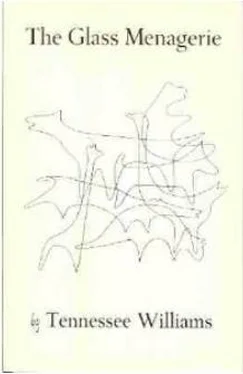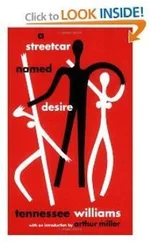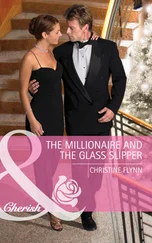THE GLASS MENAGERIE,
by Tennessee Williams, 1944
Amanda Wingfield . Amanda Wingfield is the mother of Tom and Laura. Amanda spent her youth in the south, and in a way she continues to live there, endlessly telling her children stories of her life back in those days. Her desire to live in the past is perhaps not surprising, given that it was so much more enjoyable than the life she has in the present-living on limited means in an apartment in a rundown area of St. Louis.
Amanda’s husband deserted her sixteen years ago, and she is scared that Tom will turn out like his father. But she does not realize that by her constant attempts to manage his life for him, she is driving him away. Amanda is resourceful and energetic, and her sole ambition is that her son and daughter should be successful and happy. But her attempts to marry off Laura to Jim are a terrible failure and leave her desolate, although she still manages to put a brave face on things.
Laura Wingfield . Laura Wingfield is Amanda’s daughter. She is an extremely shy young woman in her early twenties. Following a childhood illness she is crippled, and wears a leg brace. Laura is so withdrawn, so unable to make contact with reality, that she spends her time playing with her collection of glass animals and listening to gramophone records. The failure of her encounter with Jim makes her even more withdrawn. Tennessee Williams wrote of her, “she is like a piece of her own glass collection, too exquisitely fragile to move from the shelf.”
Tom Wingfield . Tom Wingfield is the narrator of the play as well as a character in it. He is Amanda’s son and Laura’s brother. Tom is a poet, and he feels stifled by his unrewarding job at the warehouse and the tense situation at home, where he is always quarreling with his controlling mother. He wants to escape his situation, just as his father managed to escape many years before. His goal is to join the merchant marine, and he is prepared to be ruthless in accomplishing his goal – for example, paying his dues to the seaman’s union with the money that should have been used to pay the electricity bill. But even though he does manage to leave the family home, he does not find happiness. As he travels from city to city, he cannot forget the sister he left behind.
Jim O’Connor . Jim O’Connor is a friend of Tom’s from the warehouse where they both work. Tennessee Williams describes him in his notes to the play as “A nice, ordinary young man.” Jim is the “gentleman caller” who is invited to dinner by Tom, and in whom Amanda places her hopes for finding a husband for Laura.
Jim was an outstanding success in high school, and everyone thought he would succeed in life. However, in the six years that have elapsed since he graduated, he has found life much tougher than he might have expected. At the warehouse, he is a shipping clerk, which is only a slightly better position than Tom’s. However, Jim is a cheerful, optimistic young man, who is determined to get on in life. He is studying public speaking and radio engineering at night school, and wants to go into the fledgling television industry. When he visits the Wingfield family, Jim does his best to draw Laura out of her shell, but his enthusiasm runs away with him and he makes the mistake of kissing her. He then has to explain that he must disappoint her because he has a steady girlfriend named Betty.
Scene: An alley in St. Louis.
Time: Past and Now [1] Tom narrates his memories at about the time of the outbreak of World War II (1939-1945)
[ The Wingfield apartment is in the rear of the building, one of those vast hive-like conglomerations of cellular living-units that flower as warty growths in overcrowded urban centres of lower-middle-class population and are symptomatic of the impulse of this largest and fundamentally enslaved section of American society to avoid fluidity and differentiation and to exist and function as one interfused mass of automatism.
The apartment faces an alley and is entered by a fire-escape, a structure whose name is a touch of accidental poetic truth, for all of these huge buildings are always burning with the slow and implacable fires of human desperation. The fire-escape is included in the set – that is, the landing of it and steps descending from it.
The scene is memory and is therefore non-realistic. Memory takes a lot of poetic licence. It omits some details; others are exaggerated, according to the emotional value of the articles it touches, for memory is seated predominantly in the heart. The interior is therefore rather dim and poetic.
At the rise of the curtain, the audience is faced with the dark, grim rear wall of the Wingfield tenement. This building, which runs parallel to the footlights, is flanked on both sides by dark, narrow alleys which run into murky canyons of tangled clothes-lines, garbage cans, and the sinister lattice-work of neighbouring fire-escapes. It is up and down these alleys that exterior entrances and exits are made, during the play. At the end of Tom’s opening commentary, the dark tenement wall slowly reveals (by means of a transparency) the interior of the ground floor Wingfield apartment.
Downstage is the living-room, which also serves as a sleeping-room for Laura, the sofa is unfolding to make her bed. Upstage, center, and divided by a wide arch or second pro-scenium with transparent faded portières (or second curtain), is the dining-room. In an old fashioned what-not in the living-room are seen scores of transparent glass animals. A blown-up photograph of the father hangs on the wall of the living-room, facing the audience, to the left of the archway. It is the face of a very handsome young man in a doughboy’s First World War cap. He is gallantly smiling, ineluctably smiling, as if to say “I will be smiling forever”.
The audience hears and sees the opening scene in the dining-room through both the transparent fourth wall of the building and the transparent gauze portières of the dining-room arch. It is during this revealing scene that the fourth wall slowly ascends out of sight. This transparent exterior wall is not brought down again until the very end of the play, during Tom’ s final speech.
The narrator is an undisguised convention of the play. He takes whatever licence with dramatic convention is convenient to his purpose.
TOM enters dressed as a merchant sailor from alley, stage left, and strolls across the front of the stage to the fire-escape. There he stops and lights a cigarette. He addresses the audience. ]
TOM: Yes, I have tricks in my pocket, I have things up my sleeve. But I am the opposite of a stage magician. He gives you illusion that has the appearance of truth. I give you truth in the pleasant disguise of illusion.
To begin with, I turn back time. I reverse it to that quaint period, the thirties, when the huge middle class of America was matriculating in a school for the blind. Their eyes had failed them or they had failed their eyes, and so they were having their fingers pressed forcibly down on the fiery Braille alphabet of a dissolving economy.
In Spain there was revolution. Here there was only shouting and confusion.
In Spain there was Guernica [2] Guernica: a town in a northern Spain, heavily bombarded by German aircraft in 1937 during the Spanish Civil War
. Here there were disturbances of labour, sometimes pretty violent, in otherwise peaceful cities such as Chicago, Cleveland, Saint Louis…
This is the social background of the play.
[ MUSIC ]
The play is memory.
Being a memory play, it is dimly lighted, it is sentimental, it is not realistic.
Читать дальше












